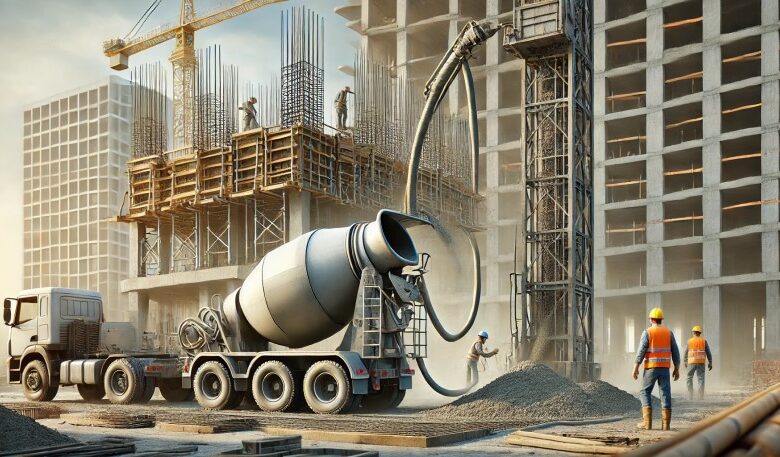Concrete Mixers vs. Concrete Pumps: Which One Do You Need?

When it comes to concrete construction, choosing the right equipment can significantly impact efficiency, cost, and project success. Contractors often face the decision between using concrete mixers or concrete pumps, depending on the job’s requirements. At CGS Equipment, we understand the importance of selecting the best machinery for each project. If you’re weighing the benefits of concrete mixers vs concrete pumps, this guide will help you determine which option suits your needs.
Understanding Concrete Mixers and Concrete Pumps
Both concrete mixers and concrete pumps play crucial roles in construction, but they serve different functions.
- Concrete Mixers: Used to blend cement, water, and aggregates to create concrete before it is transported to the pour site.
- Concrete Pumps: Used to transport mixed concrete from the mixer to the exact location needed, eliminating manual transportation.
Concrete Mixers: Benefits & Best Uses
Concrete mixers are essential for any project that requires freshly mixed concrete. They come in different types, including:
- Drum Mixers: Ideal for small to medium projects.
- Batch Mixers: Suitable for projects that require precise mix proportions.
- Volumetric Mixers: Allow on-site adjustments to mix design and quantity.
Advantages of Concrete Mixers:
- Cost-effective for small to medium projects.
- Provides fresh concrete with adjustable consistency.
- Ideal for applications where concrete transportation is manageable.
When to Use a Concrete Mixer:
- Residential driveways and sidewalks.
- Foundations for houses and buildings.
- Small-scale commercial projects.
Concrete Pumps: Benefits & Best Uses
Concrete pumps are designed to transport ready-mixed concrete to hard-to-reach areas quickly and efficiently. They come in two main types:
- Boom Pumps: Feature robotic arms for placing concrete at heights and distances.
- Line Pumps: Use flexible hoses for precise pouring in small or confined spaces.
Advantages of Concrete Pumps:
- Eliminates the need for manual concrete transport.
- Ensures faster placement, reducing labor costs and project time.
- Ideal for large-scale projects or sites with difficult access.
When to Use a Concrete Pump:
- High-rise building construction.
- Large-scale infrastructure projects.
- Sites with limited space for traditional pouring methods.
Concrete Mixers vs. Concrete Pumps: Which One Do You Need?
The decision between a concrete mixer and a concrete pump depends on various factors, including:
- Project Size: Mixers are better for smaller jobs, while pumps excel in large-scale construction.
- Accessibility: If the pour site is difficult to access, a pump may be necessary.
- Labor Costs: Concrete pumps reduce manual labor, which can save costs on larger projects.
- Time Constraints: If efficiency and speed are priorities, pumps offer faster concrete placement.
Final Thoughts
Understanding the differences between concrete mixers vs concrete pumps ensures that you select the right equipment for your construction needs. Mixers are ideal for on-site concrete preparation, while pumps are perfect for large-scale projects requiring precise placement.
For high-quality concrete equipment and expert advice, explore the range of solutions at CGS Equipment and find the perfect machinery for your next project!



